Peter Morgan, Issa López and More Talk Peak IP, Painful Passes and On-Set Cavity Searches at THR’s TV Producers Roundtable
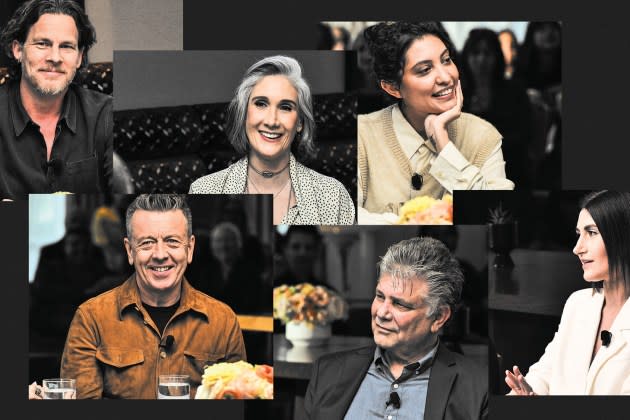
“I feel like I’m at the adult table at Thanksgiving when I’m supposed to still be at the kids’ table,” announces Francesca Sloane, moments into THR‘s TV Producer Roundtable. “It’s surreal.”
The Mr. & Mrs. Smith showrunner may have the shortest résumé among her peers gathered at the Fairmont Century Plaza for the live event, but she is by no means out of place. That became crystal clear when the conversation turned to show envy. “I was envious watching Mr. & Mrs. Smith,” says The Crown creator Peter Morgan. “Dealing with repressed British people for so long, I was peering over the fence thinking, ‘Look how much fun they’re having!’ “
More from The Hollywood Reporter
Hollywood Reporter Critics Pick the 10 Best Films of 2024 So Far
Anouk Aimée, Enigmatic Star of 'A Man and a Woman,' 'La Dolce Vita' and '8 1/2,' Dies at 92
That was not the end of the love fest. Ripley writer-director Steven Zaillian picked Issa López’s True Detective: Night Country, and vice versa. “In Mexico, there’s bad envy and good envy,” explains López. “Bad envy will destroy you. Good envy inspires you. It makes you want to do better. Ripley, for me, was a massive lesson in good envy.”
Hacks co-creator Jen Statsky, whose comedy represented the lone series on the panel not based on a known commodity, has that good envy of everyone else. “I have a show that isn’t based on IP or real life, and when I have even 40 people on the internet mad at me, I freak out,” says Statsky. “There’s tremendous pressure on you, the highest stakes. I hope you all have Xanax.” (Fallout directing executive producer Jonathan Nolan, for his part, chose Bluey on account of it being the only thing he likes watching with his kids.)
But it was hardly all fawning. When six of the top producers in TV sat down on May 16, they dug into dead pitches, their most intimidating scenes and the bleak tone of recent executive conversations.
We’re in a period of serious belt-tightening in the industry right now. Who here thinks they’d have a hard time getting their show made if they took it to market today?
JEN STATSKY It is a hard time to make comedy. There’s a real downsizing of the number of comedies that are on the air and also of the budget allotted to comedies. Hacks didn’t have a star attached — because we didn’t [have Jean Smart] when we took it out. The show is essentially about two women talking, and one of them is in her 70s. That was a hard sell at the time! We were really lucky to get passionate executives who heard it and got it, but I think it would be much harder now. Comedy is not being as prioritized, even as it was in 2019, when we pitched it.
STEVEN ZAILLIAN That’s been my experience all along. They’re all hard to get made. At the end of the day, you have to convince one person — one person at that studio who has the ability to say yes. And if you can convince that person, you’re in good shape. That happened with the first movie I ever made. It was Searching for Bobby Fischer. And Brandon Tartikoff, who was running the studio at that point, happened to like chess and kids. He said, “Yes, and I don’t even care if we don’t make our money back. I want to make this movie.”
PETER MORGAN It’s the same contradiction, isn’t it? You want to come up with an idea that is instantly connectable, one people can immediately see. But the things that we cheer and applaud the most are the things that defy all that process. You’re stuck. The audience is screaming out, hoping that we bring originality to the table, yet sometimes the gateway to getting anything made at all is to be predictable. You have to fight that all the time because a lot of the things that I’ve written are terrible pitches. Frost/Nixon is the worst pitch known to man, but what can you do?
FRANCESCA SLOANE I got very lucky with the fact that I had the Donald Glover card. He’s known to be this guy who can get away with things with a twinkle in his eye. People sort of eat it up. But I am a cinema nerd who loves art films. I never imagined in a million years, as grateful as I am, that I would be writing Mr. & Mrs. Smith, the TV series. And the movie’s great! But I turned myself into a balloon animal taking this IP, which is the thing that studios are comfortable putting out right now, and making it into something that made sense for us as artists. I hope that we can get brave again as a society to welcome originality back.
What’s the passion pitch that you’ve taken out and just can’t sell?
JONATHAN (JONAH) NOLAN My brother [Christopher Nolan] couldn’t sell Memento. No one wanted to buy it. No one wanted to do anything with it for six months. And we spent those six months writing an action comedy. It’s still the one that got away. But maybe we’ll get back to it someday.
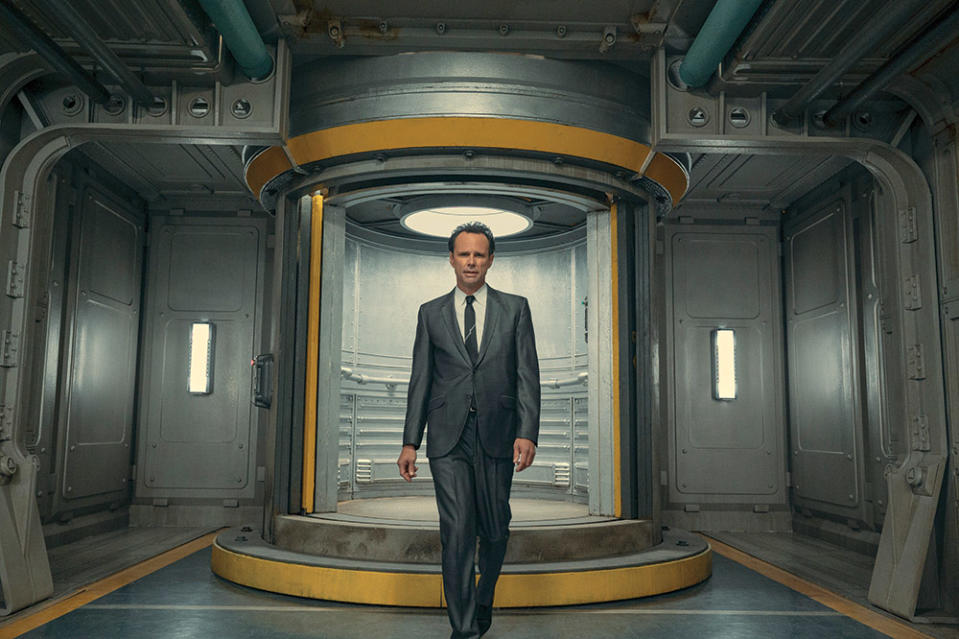
ISSA LÓPEZ I’ve talked to many filmmakers and storytellers, and, by my personal math, for every project that gets made — depending on who you are and where you are in life — between seven and 11 are not made. I don’t know if you guys are luckier than me or smarter in selling them, but so many of the projects that made me who I am as a storyteller, most weren’t made and probably never will be. Their corpses feed the tree of what I get to make.
STATSKY I’ve joked that I’m going to start posting on Instagram all my passes because we don’t talk about that and you don’t see it. All of us can probably speak to 10 projects that just never saw the light of day. When you are lucky enough to find success and get something on the air, sometimes I do want to be like, “But there were so many ‘nos’ on this path!”
LÓPEZ I’m always trying to convince other people to come to my place, open a bottle of mezcal, and show each other the [old] pitches just for fun — all the cadavers we left behind, a Mexican Irish funeral for the departed.
Jonah, you filmed portions of Fallout in, I believe, an abandoned diamond mine in Namibia. And because there are still diamonds there, is it true that everyone on the shoot had to agree to submit to a potential cavity search —
NOLAN A body cavity search, that’s right.
SLOANE My God! (Laughter.)
Please tell us about that conversation with your partners.
NOLAN I’m not sure I had that conversation? (Laughs.) We agreed on their behalf. We’d [originally] found pictures of this insane abandoned mine when we were researching Westworld, but it just didn’t work for the American West. But it looks exactly like Los Angeles, if you just strip everything away. They told us no one had ever shot there before. It was an active diamond mine for many, many years — and they were going to resume mining after we finished shooting. There were loose diamonds still just sitting on the rocks. We had carefully explained to the crew, like, “They have spotters on every hill — and if it looks like you’re trying to carry something out of the mine, you’re going to wind up in what they called “the shed.” You did not want to wind up in the shed. I’d call action, and I’d be focused on the take — but then I’d look over, and you’d see every crewmember who wasn’t in the shot looking at the rocks trying to figure it out.
Did anyone end up in the shed?
NOLAN No one ended up in the shed. I’m not sure if anyone wound up with some diamonds. (Laughter.)
Peter, you got a bit of attention recently for your comments that you weren’t really that interested in the monarchy.
MORGAN Did I say that? (Laughter.) It’s true!
So when does that feeling happen? Was that from the very beginning or was that after making a play and a film and six seasons of a television series about them?
MORGAN I know, I know. It seems silly.
STATSKY What do you do if you are interested in something?
MORGAN If you’d have told me that I’d end up doing all this, I’d have probably dropped dead in advance. But it’s not an interest in the royal family. It’s an interest in human beings in a predicament. And I wanted to try and understand Britain. We have a ridiculous relationship with this family, which tortures them. It’s our fault. It’s not their fault. We torture them, and I wanted to get inside our problem with them, their problem with us, and our problem with who we are in Britain. That’s the family through which to explore who we are.
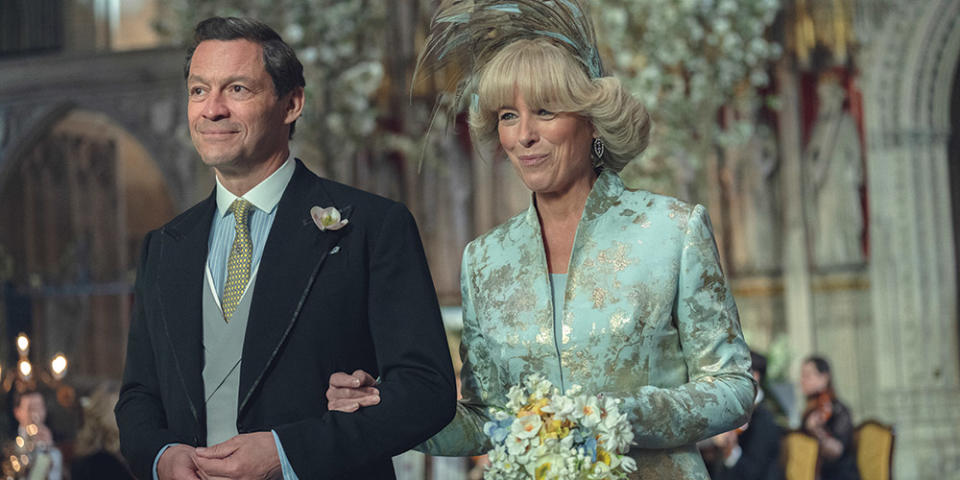
That said, if you’re interested in predicaments, you now have these estranged brothers, a wild fascination with Princess Kate and Meghan Markle and, in general, a monarchy that seems very fragile in the wake of Queen Elizabeth II’s death. Do you give any thought, when you’re lying in bed at night, to resuming this down the line?
MORGAN I can honestly promise you I don’t give it a single thought. (Laughs.) I can see that there are issues, but I can see that a lot of that is driven by the press, too. We ended it 20 years [in the past] and I wouldn’t want to go one step closer. You just want to let a family be.
I want to go back to what Steve said about the late Brandon Tartikoff, because it certainly seems like no one in the Hollywood of 2024 is saying, “I don’t even care if we don’t make our money back.” What’s the most difficult or depressing conversation you’ve all had with a TV or film executive in the past six months?
STATSKY I said to one something like, “What are you guys looking for?” They said, “Hits.” (Laughter.) But they’re not wrong! I think that is what they’re looking for.
NOLAN Tying it back to what we were talking about before, I wouldn’t be challenged in getting Fallout greenlit today. But we might be challenged right now in getting Fallout made the way we made it. I started working in television 15 years ago, right when things were getting interesting. Watching Dan [Weiss] and David [Benioff] take on Game of Thrones and really inject the production values of a big-ticket summer blockbuster into television, that was the thing that got me and [my wife and producing partner] Lisa [Joy] very excited to make Westworld. Fallout, for me, was trying to mount a robust defense of that level of production value. It’s not the most expensive show [Amazon has] made, but we shot it on film, we shot it on location, and we built all the creatures. We did it the right way, in my opinion. I am desperate to see that window of opportunity not disappear. [Retired Warner Bros. executive] Peter Roth, when I started my career in TV, would gently remind me when I was trying to do more ambitious things on broadcast — he’d say, “Jonah, TV is two close-ups and a good script.” That’s right. It is. You never want to stray too far from that foundation. But I like the idea that TV can be everything that the movies can be, as well.
MORGAN I felt that weight of responsibility. With The Crown, I felt, “God, this is the first time in my life where I’ve walked into the room with the right idea at the right time.” I’ve walked into the wrong room so many times, clutching an idea that nobody wanted. For once, the stars align. I just thought, “I can’t screw this up.” We all thought, in that moment of people saying, “There’s a golden age of television,” you know that, as soon as someone declares that, it’s already ticking down to being over. [The Crown] was a decade of my life, but I thought that may never come again. That’s why I went all in. I didn’t do anything else. Nothing else, for a decade! Because I thought, “Tick, tick, tick. This’ll be gone in a minute and you’ll be pitching ideas to people saying, ‘We want hits.’ ”
SLOANE The moment I hear the word “algorithm,” my heart sinks. TV is not the same as cans of beans, a product that needs to be hawked in some way. So when it starts to feel like that’s how it’s being thrown to the world, you think, “But I just wanted to write!”
LÓPEZ I’m very satisfied with how weird my show is. There’s a deep resistance to weirdness in the industry, and I got the leeway to be very weird. We’ve been very lucky recently, and it’s terrifying to start hearing “hits” and “the algorithm” and “Who’s going to watch the show? Who’s your audience?” Those things just make me feel like [I want to] sit down and cry.
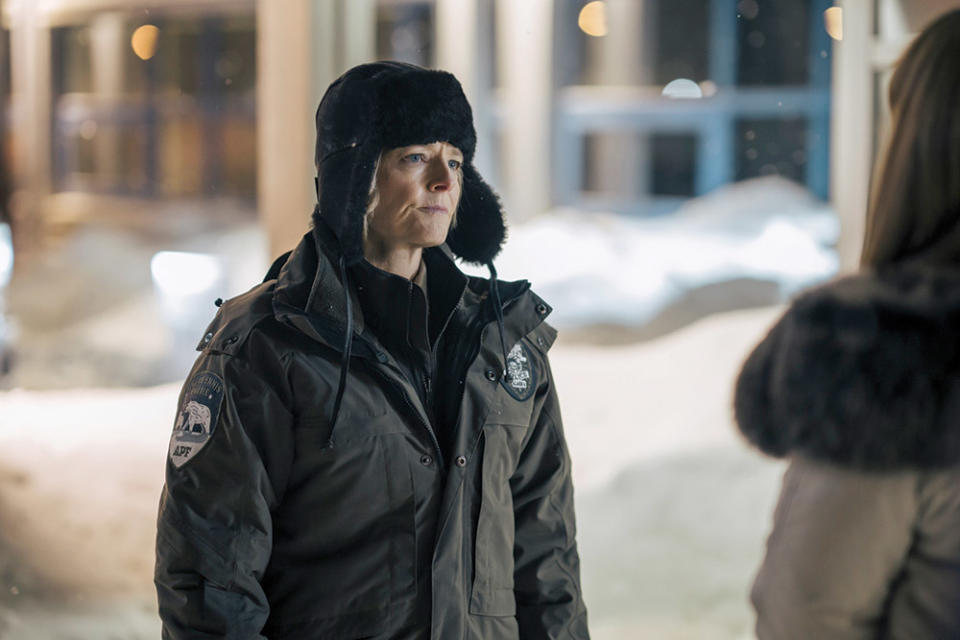
Steve, you’ve said that you don’t think about generating sympathy or empathy when you’re writing your characters, but executives tend to be really into “likability.” When have you been challenged on your style of writing?
ZAILLIAN That’s not the thing that I’m going for. Some of the great characters in literature are villains. In terms of the main characters, I just don’t see why sympathy has to be developed for them. The story is what’s important to me, and the way the characters serve the story. I am sure they’re all some sort of version of me. I try to put myself into that story and just look at the behavior rather than trying to artificially create sympathy.
MORGAN There’s a danger, isn’t there? If you try and make somebody likable, as in life, they just become more repellent.
Fran, you’re tackling very dark comedy, and that can be a tough line to walk. How much were you trying to gauge how everything was going to land with the audience?
SLOANE The entire time? The toughest part of this show was the tone and not knowing how it would be metabolized. I would write certain scripts, toward the end of the season, and it just felt very bleak. I was like, “It’s funny, right? Right!?” No one was laughing. Donald and Maya [Erskine], especially, weren’t laughing. And there are many beautiful films out there about heartbreak that can just make you feel like you’re ripping your heart out over and over again. But that’s not what the show needed to be. One episode was far too dark. Just a bummer. And I thought, “How can we fix this? Sarah Paulson!” It was an entire rewrite to put [Donald and Maya’s characters] in this couples therapy office with Sarah, having to lie — which is really counterintuitive to what you actually need to do in therapy. That found the comedy.
Has anyone put anything out into the world — could be an episode, a scene, an anything — and have it not be received as intended?
LÓPEZ As you write [a mystery], you sprinkle clues carefully so that no one is going to put it together — but, when the answer comes, they will look back and go, “Oh, it was right there!” You want that jammy experience of, “Ah, I almost had it!” What I was not expecting, and it’s so silly of me, is the fact that people get obsessed. True Detective is a beloved franchise, and because HBO delivers episodes weekly, those people would watch an episode three and four times. So, [despite] my plan of being super smart and secretive about the very ingenious things that I thought people wouldn’t see happen, they were catching on to every little clue I left. They didn’t put the whole mystery together at the end, but some people got awfully close. For six weeks, I was biting my nails.
NOLAN We had a very similar experience on the first season of Westworld. The idea was to do a season-long mystery, so we structured it exactly the same way that we structured the reveals in The Prestige or Memento. I always thought that you have to play fair with the audience. You can’t just pull the rug out. You have to see these little things in there. But, of course, with a weekly release, people on Reddit are devouring every little piece of it. We realized after the fact that, as fun as it was to see people savor every episode, we actually would’ve had more fun bingeing that show. Netflix’s whole contention is that spoilers don’t matter. They get people more excited. I don’t quite subscribe to that. I think you have to be very careful.
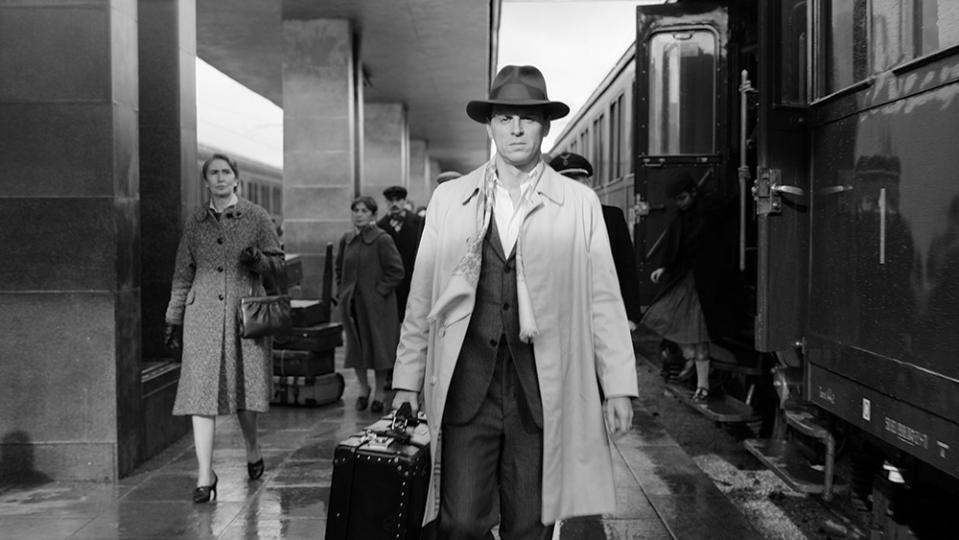
What’s the professional call that you dream of getting — be it an offer to work on a property, or from a collaborator or an actor who wants to work with you?
LÓPEZ I want that phone call to come from me to the studio. I want to be able to be the one saying, “Hey, I have an idea,” and have someone listening on the other side. The traditional big, big packages? Not for me. I don’t get excited.
ZAILLIAN I spent, I don’t know, 25 years doing movies before I did any television; I don’t really feel like I’m in the television business. I know that the true success of shows is when they repeat, when you can do multiple seasons of something. But I don’t know how to do that.
A lot of people wanted a second season of The Night Of.
LÓPEZ Yeah!
ZAILLIAN But then you’ve got to do it! (Laughter.) It’s tough. It’s hard to do one.
Between you all, you’re telling stories of likable sociopaths and assassins, a nuclear holocaust and, worst of all, complicated women. What was the last scene that you wrote or filmed that made you nervous?
LÓPEZ It was the day before the last day of shooting, and I had to throw Jodie Foster into a very dark tank of water. She’s as blind as I am, by the way, so I had a lot of empathy that she couldn’t use her contacts underwater. She’s such a trooper. She trained and she was prepared. But when the time comes and you watch a person sink, not being able to get out on their own, something very primitive kicks in. Obviously, there’s a diver there ready to bring her back, but I was looking at the monitor and I knew that she was panicking for real — which was great for the shot. (Laughs.) But there’s this moment of, “Um, I’m killing a Hollywood legend and national treasure here!” So you say “cut,” perhaps too soon. She comes out and I go, “Jodie, Jodie, is everything fine?” “Yeah.” And I go, “You’re panicking, right?” “Yeah.” And then I go, “So sorry. We have to do it again.”
STATSKY This seems significantly lower stakes, but, on Hacks, we’re dealing with generational differences. Sometimes [Jean Smart’s character] Deborah Vance does things that to a younger generation may seem unsavory. We did something in season three, where she hires little people to dress as elves and deliver her Christmas invitations. [Hannah Einbinder’s Gen Z character] Ava, upon coming downstairs and seeing the auditions for this, is screaming at her. But it’s always an interesting thing of us wanting to authentically depict how Deborah would think and do things, but also, on the other side of it, going like, “Wait, is this OK?”
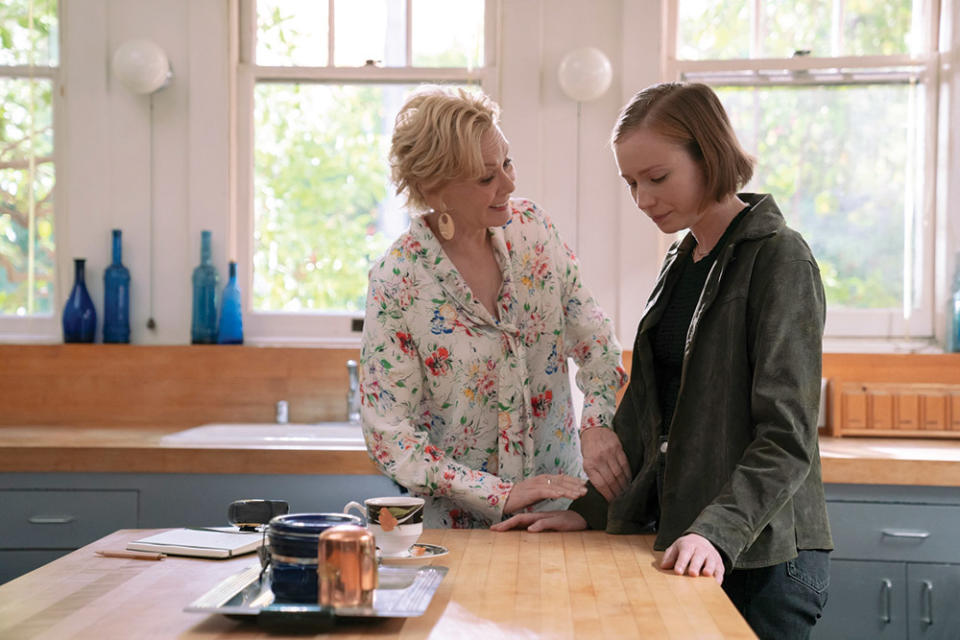
There’s a lot of IP at this table. We know how it helps a project, but what are the negatives?
NOLAN I was just having a conversation the other day with someone who actually tallied it up. In the history of TV, the vast majority of hits are original. It was one of the things that drew me to TV in the first place. I’d worked in the movie business for 10 years. I’d spent four years trying to write Interstellar for Steven Spielberg. He left Paramount, and the project fell apart. I said, “I know a guy. I want to get the movie made. But, in the meantime, I couldn’t spend four years trying to develop [another movie]. At
that time, the crisis in the film business was the same crisis we now face in TV. So, I took a broadcast pilot [Person of Interest] out. It was an original concept, because it was very unusual to have IP in TV at that point. So, we’re in a slightly bittersweet situation. I’m very, very proud to work on Fallout, but the lifeblood of TV is originality.
What is the one question you never want to be asked again?
LÓPEZ I think I’m done answering how I feel about [IP creator and original showrunner] Nic Pizzolatto reacting badly to my series.
SLOANE Fair enough!
STATSKY My dad always asks, “Which character do you write for?” I don’t want to hear that question anymore because you have to write for all of them. You can’t just write for one.
MORGAN “Did that really happen?” There’s Dr. Wikipedia. Check it out! (Laughter.)
ZAILLIAN Same. The things that I did at the beginning were nonfiction, and that was a question that I’d get a lot. And my answer is, “Yes, in some fashion.” Also, that a two-hour movie is not real life. But this is the only way that you can tell a story.
MORGAN I’ve had a lot of conversations about truth and accuracy and the distinctions between the two — how necessary one is, as opposed to the other, as long as something’s truthful.
NOLAN A question I could retire forever: “Why don’t you have an English accent?” Why doesn’t Chris have an American accent? That’s the real question! (Laughter.)
This story first appeared in a June standalone issue of The Hollywood Reporter magazine. Click here to subscribe.
Best of The Hollywood Reporter

 Yahoo News
Yahoo News 